Fix: Please Update Your Device Settings to Accept Media Files
There's more than one way to transfer files to your PC
6 min. read
Updated on
Read our disclosure page to find out how can you help Windows Report sustain the editorial team. Read more
Key notes
- If during a file transfer, your PC is not accepting media files, switch up your USB ports and ensure your OS is up-to-date.
- Also, check that your SD card is not damaged or format it if you have a backup of your files. Keep reading for more of these tips.
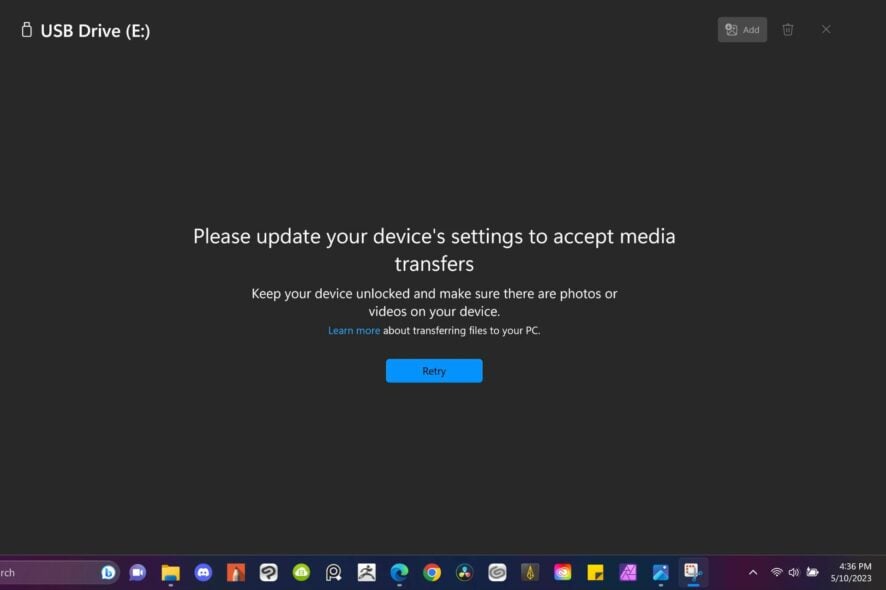
Windows 11 allows you to transfer media from your phone to your PC but sometimes, if your configurations are incorrect, you may get the Please update your device settings to accept media files error.
Luckily, WindowsReport experts have experienced this error firsthand and bring you our tried and tested solutions.
Why is my device not accepting file transfers?
- Faulty USB ports or damaged cables.
- An outdated OS.
- Corrupt files or a virus-infected PC.
- Missing or outdated drivers.
How do I fix Please update your device settings to accept media files error?
1. Update your device’s software
1.1 Windows OS
- Hit the Windows key and click on Settings.
- Click on Windows Update then select Check for updates.
- If available, Download and install.
1.2 Phone OS
- Locate Settings on your device. (We’ll be using the Samsung model for this step).
- Go to Software update.
- Tap on Download and install.
- Wait for the update to finish installing if available, and retry your transaction.
Updating the OS also helps with Google Play error code 492.
2. Enable USB debugging
- On your phone, navigate to Settings.
- Scroll down and select About phone.
- Select Software information.
- Tap on Build number 7 times to enable Developer mode.
- Go back to Developer options and enable USB debugging.
This setting lets your phone communicate with the computer and transfer files over a USB connection, especially in cases where Windows does not recognize your phone. iPhone users should unlock their devices and then retry.
3. Update USB drivers
- Hit the Windows key, type Device Manager in the search bar and click Open.
- Next, click View and Show hidden devices.
- Double-click Universal Serial Bus controllers to expand that category.
- Right-click on your USB device to select its Update driver option.
- Select Search automatically for drivers in the Update Drivers window that opens.
- Repeat steps four and five for all USB Root Hub and Generic USB Hub controller devices listed.
You can always opt for specialized software to help you with driver maintenance. PC HelpSoft Driver Updater is great at this task, as it will allow you to scan and replace all your outdated drivers in one go. Plus, this tool can be set up for long-term maintenance and automatic driver updates in the future.
4. Reinstall your USB drivers
- Insert your USB drive into your desktop or laptop.
- Hit the Windows key, type Device Manager in the search bar and click Open.
- Next, right-click the USB drive for which you need to fix to select Uninstall device.
- Click the Uninstall button on the confirmation window that opens.
- Thereafter, unplug your USB device from the PC.
- Wait about one or two minutes, restart your PC, and then connect the USB drive again and see if the Please update your device settings to accept media files error persists.
5. Run a virus check
- Press the Windows key, search Windows Security, and click Open.
- Select Virus & threat protection.
- Next, press Quick scan under Current threats.
- If you don’t find any threats, proceed to perform a full scan by clicking on Scan options just below Quick scan.
- Click on Full scan, then Scan now to perform a deep scan of your PC.
- Wait for the process to finish and restart your system.
6. Perform DISM and SFC scans
- Hit the Start Menu icon, type cmd in the search bar, and click Run as administrator.
- Type the following commands and press Enter after each one:
DISM.exe /Online /Cleanup-Image /Restorehealthsfc /scannow
7. Run the CHKDSK command on your phone’s SD card
- Insert your SD card on your PC.
- Right-click on the Start button, type cmd and click on Run as administrator to open the Command Prompt.
- Type in the following command prompt and press Enter.
chkdsk D:/f/r/x - The letter D refers to the drive letter you want to repair.
- Close the Command Prompt and check if the issue persists.
8. Repair your SD card
If your SD card is damaged or has data corruption, you’ll need to address these issues first to access and transfer any files from it.
You can attempt to repair the SD card and try the transfer again. If it doesn’t work, you may have to format it. If you have a backup of the files, you can restore them then retry the transfer.
9. Format your phone’s SD card
- Press the Windows + E key to open the Windows File Explorer.
- Select This PC, right-click on the SD card drive, and select Format from the context menu.
- Select the file system with NTFS or FAT32 for 32GB cards and exFAT for 64GB and click on Start.
If the SD card was corrupted, we recommend using software to format corrupted SD cards for better drive management.
10. Perform a System Restore
- Press the Windows key, type Control Panel, and click Open.
- Select Large icons as View by and click Recovery.
- Click Open System Restore.
- Select Choose a different restore point and click Next.
- Now select the restore point and click Next.
- Click Finish to restore the previous settings, and Windows will restart.
A system restore can help return your PC to an earlier time when things were working well. If there were any configuration settings you may be unaware of that are causing the please update your device settings to accept media files error, this should fix it.
No less important, you can also:
- Switch between the different USB ports on your PC and check for any improvements.
- Try using another device and cable to ascertain whether it’s an isolated problem.
- Restart your devices and try again.
Tips to ensure a successful file transfer between your phone and PC
- Use a certified cable, and ensure both devices have the same OS version of Android or iOS compatible with your PC and are up-to-date.
- Make sure that there is enough space on the destination device for all of your files before the transfer.
- Ensure that the file type is supported by both devices.
- Avoid transferring large files or too many files at once, as this can slow down the process. However, you can always speed up your file transfer.
One of the most important things to consider when transferring files between your phone and PC is the type of connection you’re using. Some methods are better suited to certain file types, while others are more reliable than others.
Finally, consider wireless transfer of photos, videos, and other media from your phone to your PC instead of a wired USB connection. Just make sure both devices are on the same Wi-Fi network. You can also use third-party software to transfer files.
And if you’re looking for quick ways to fix Please Insert The External Storage Media and Press OK error, rest assured that this guide covers all of them.
That’s all we had for this article, but if you have another method you applied for this same error but are missing from our list, drop us a line below.
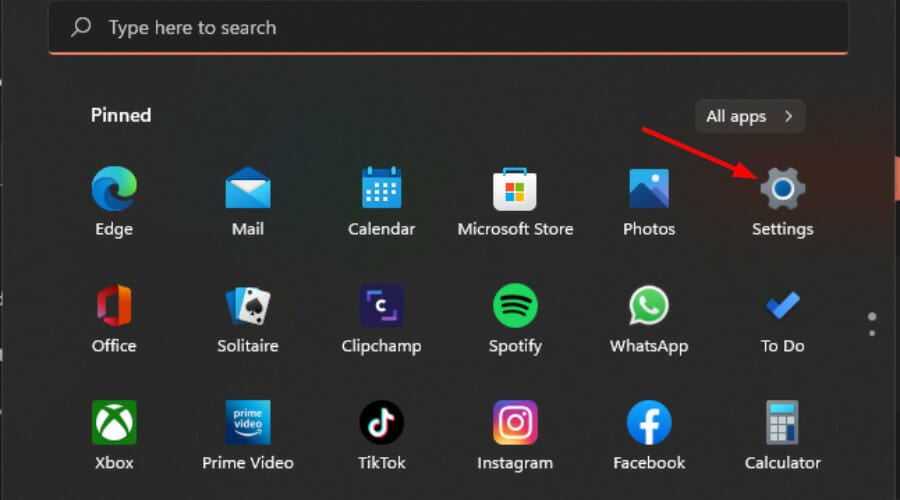
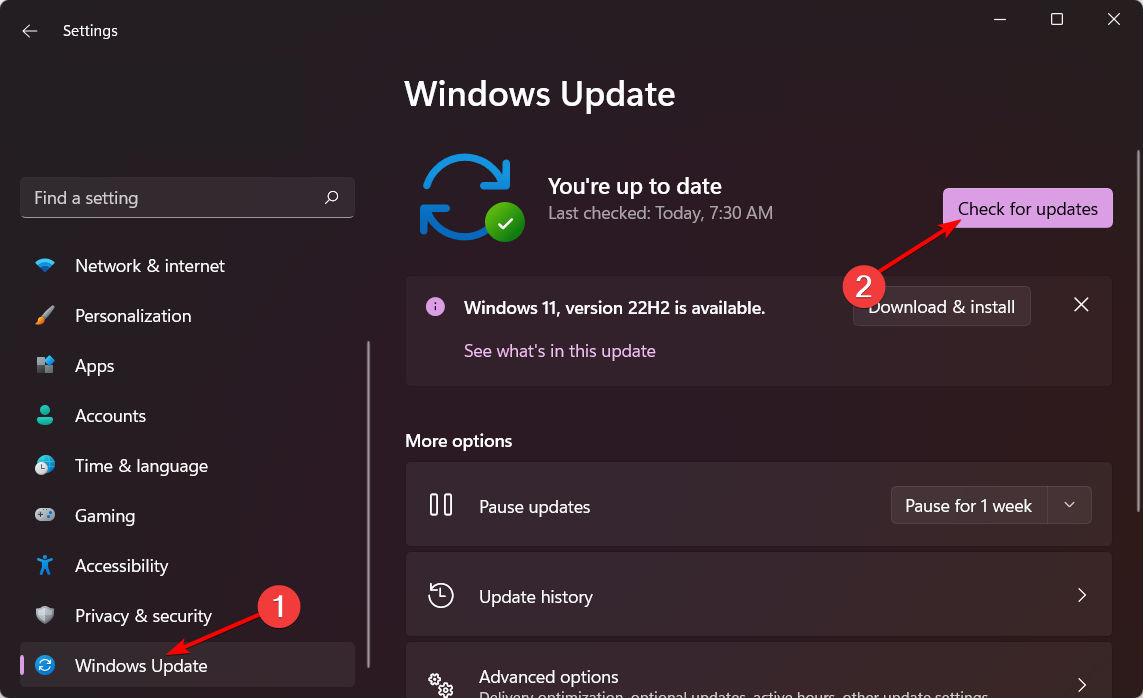
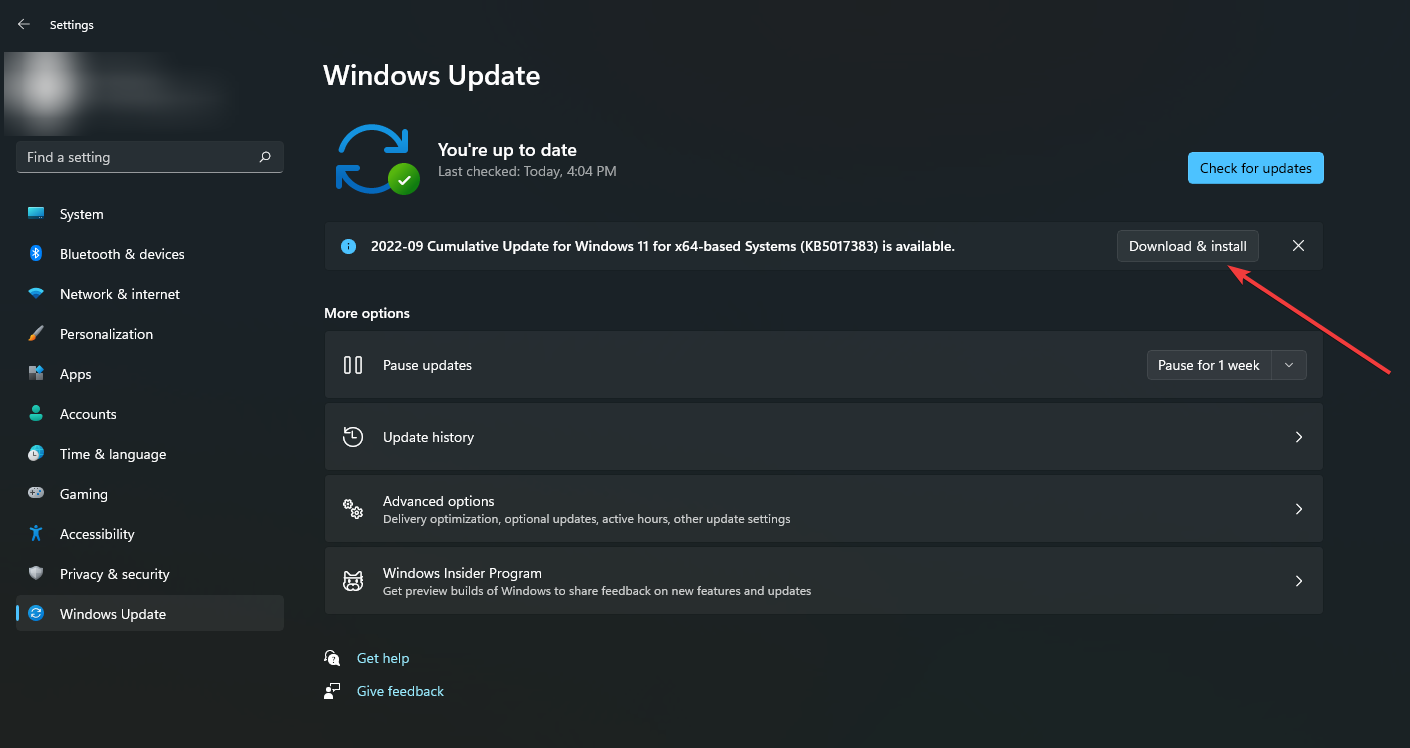
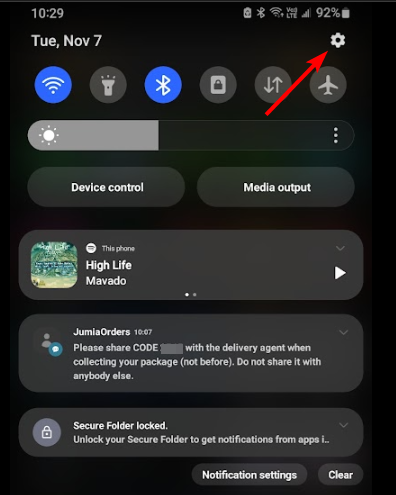

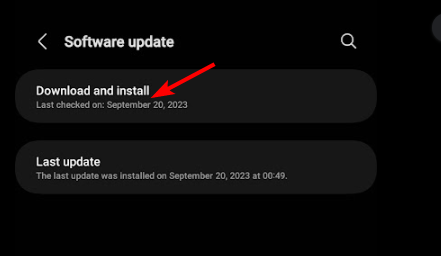
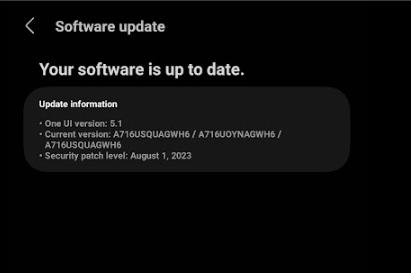
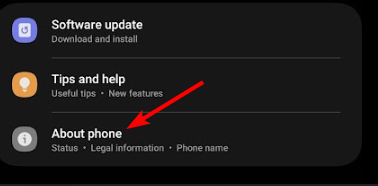
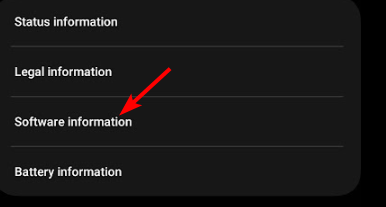
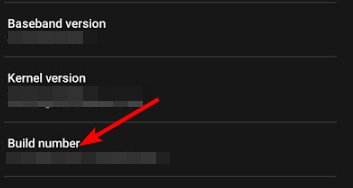
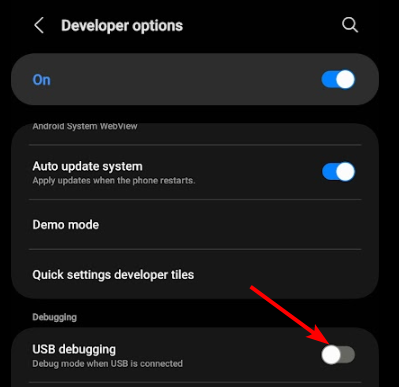
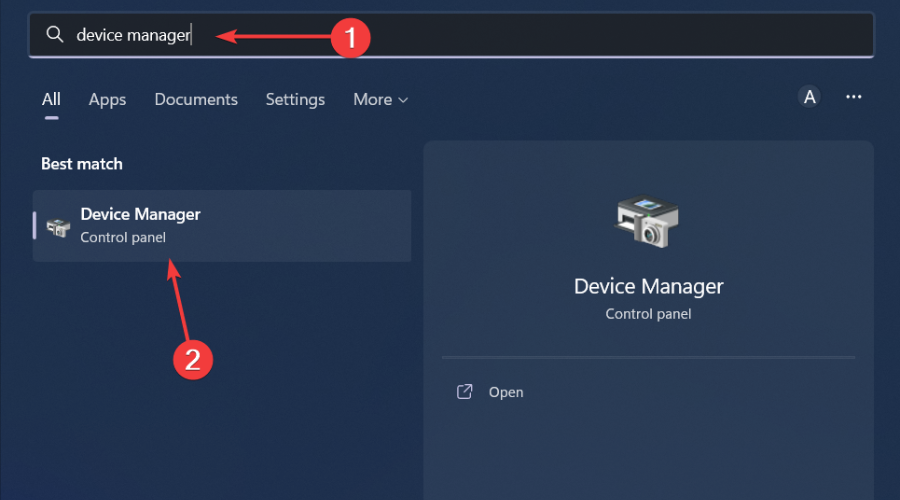
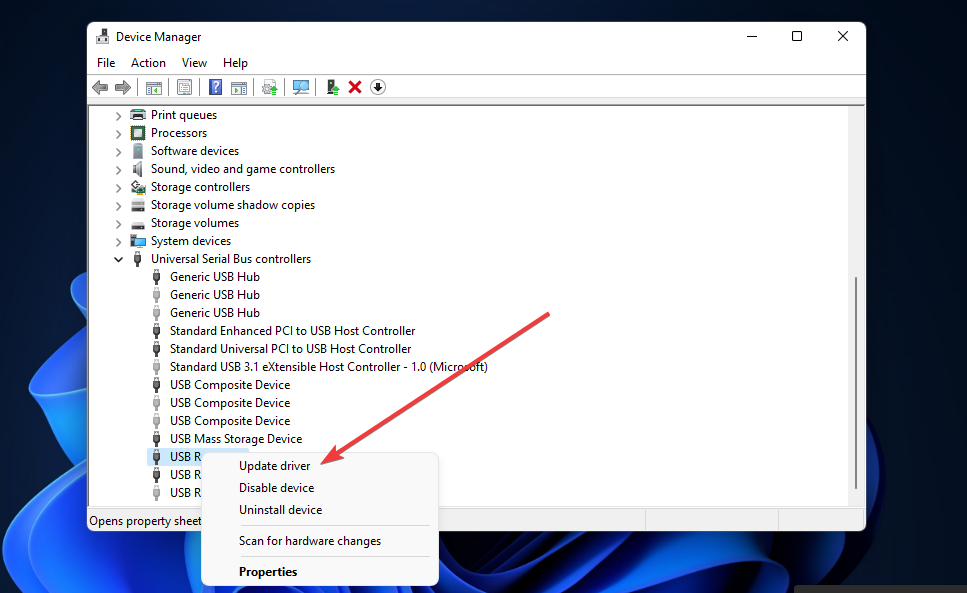
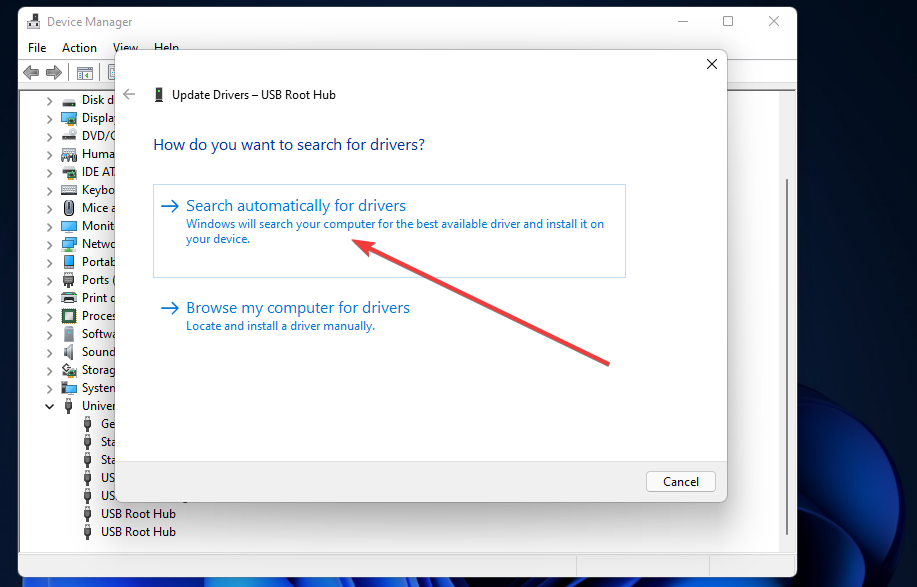
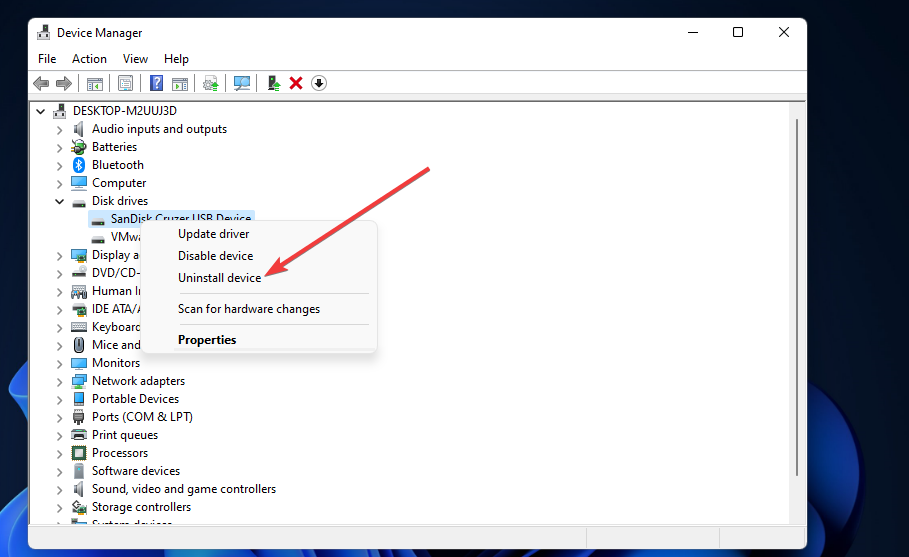
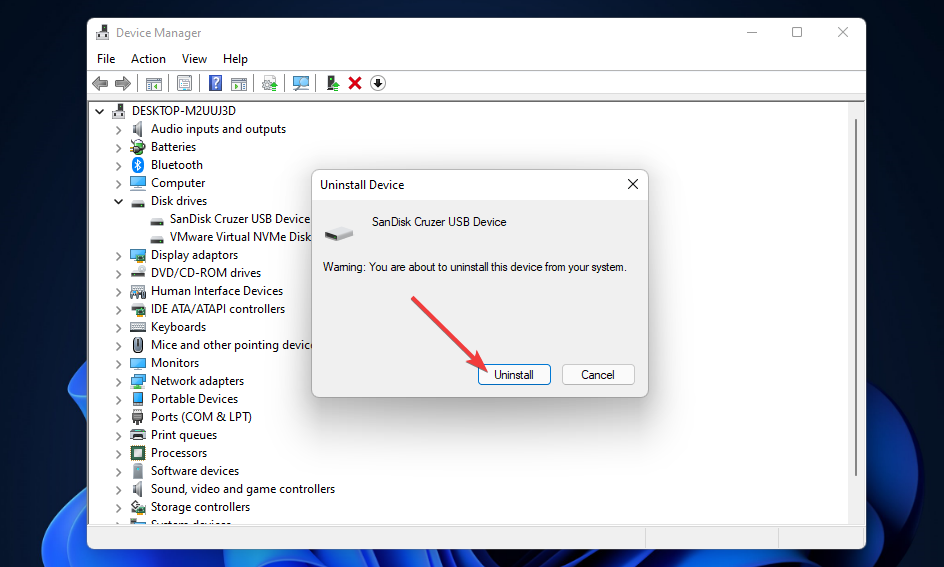
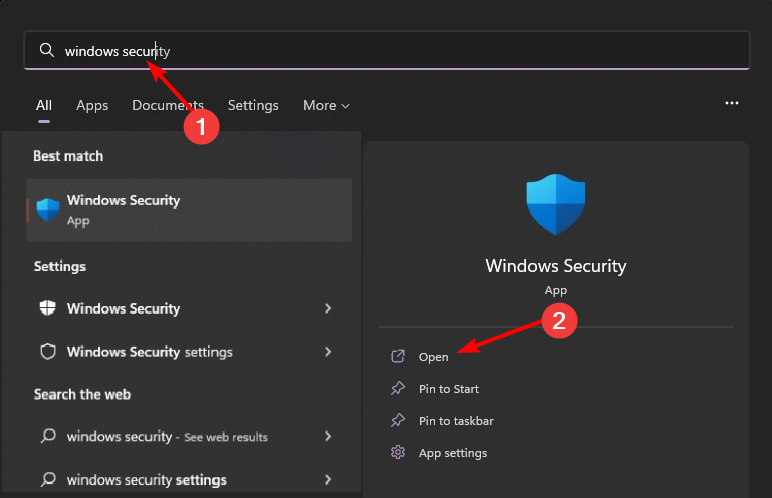
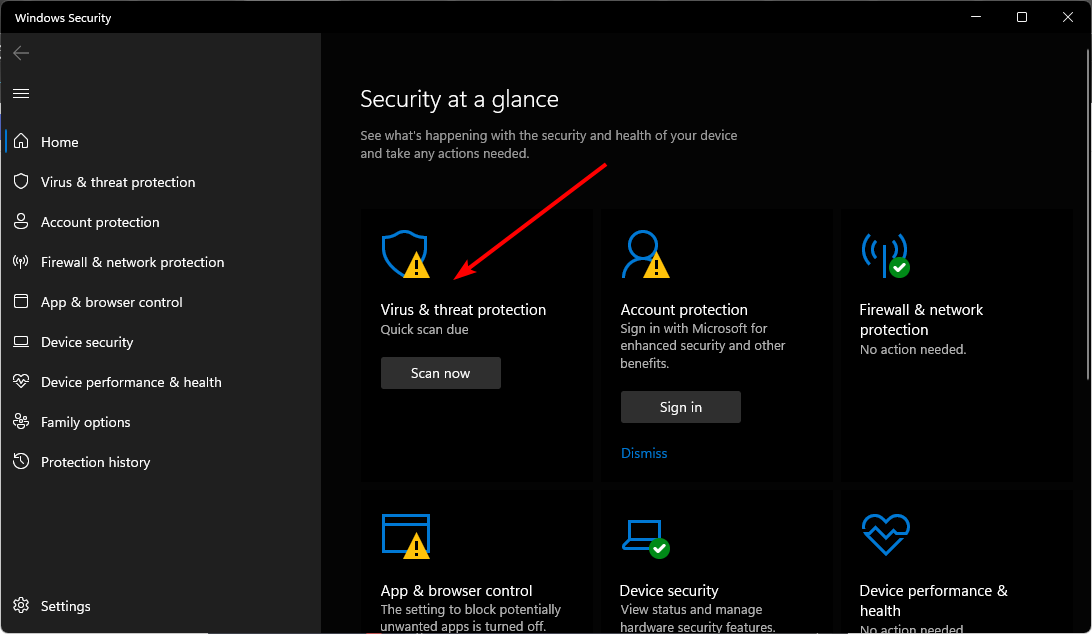
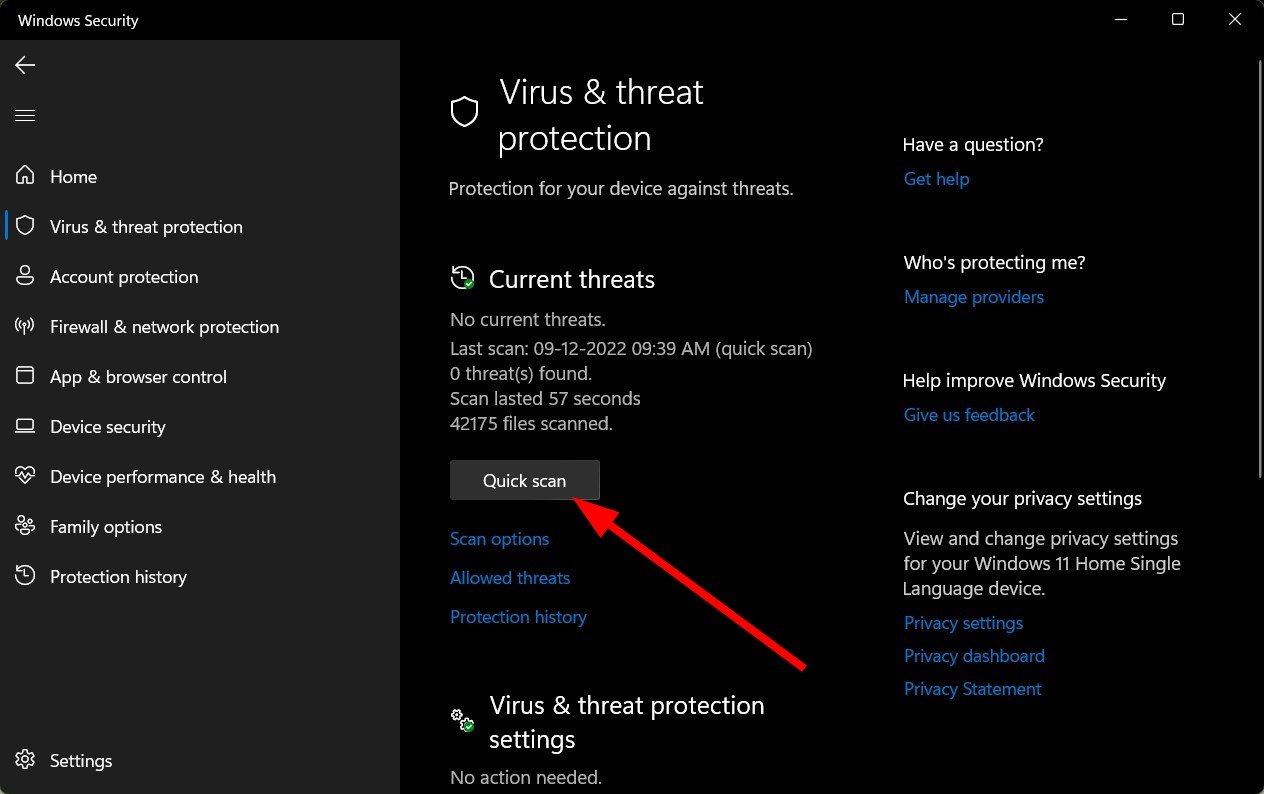
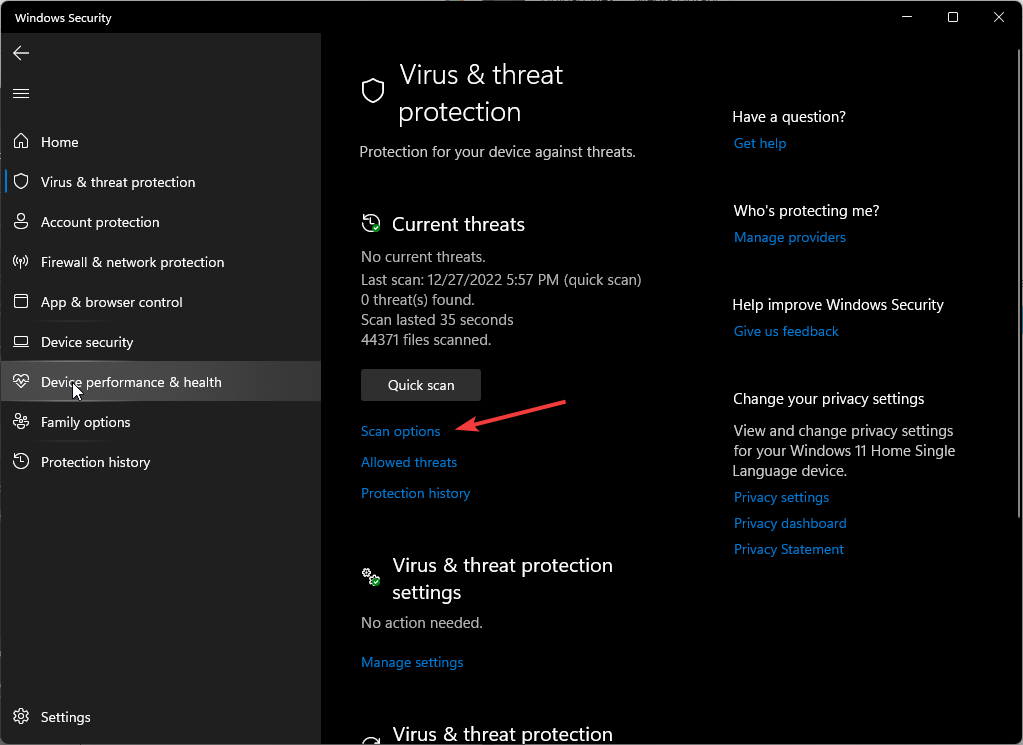
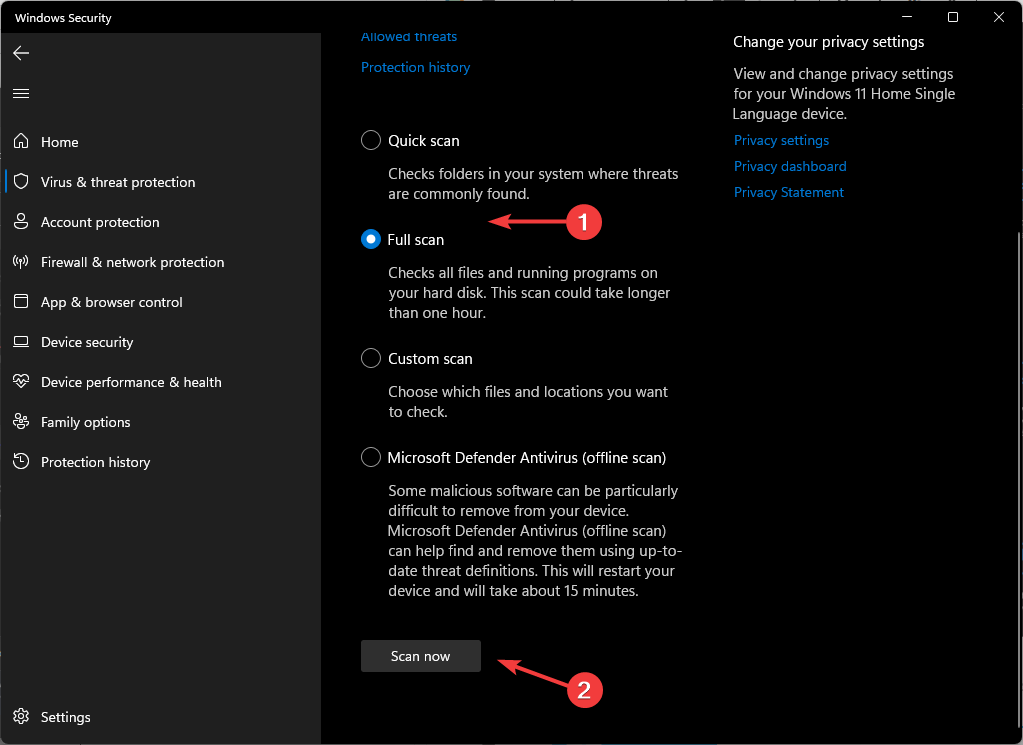
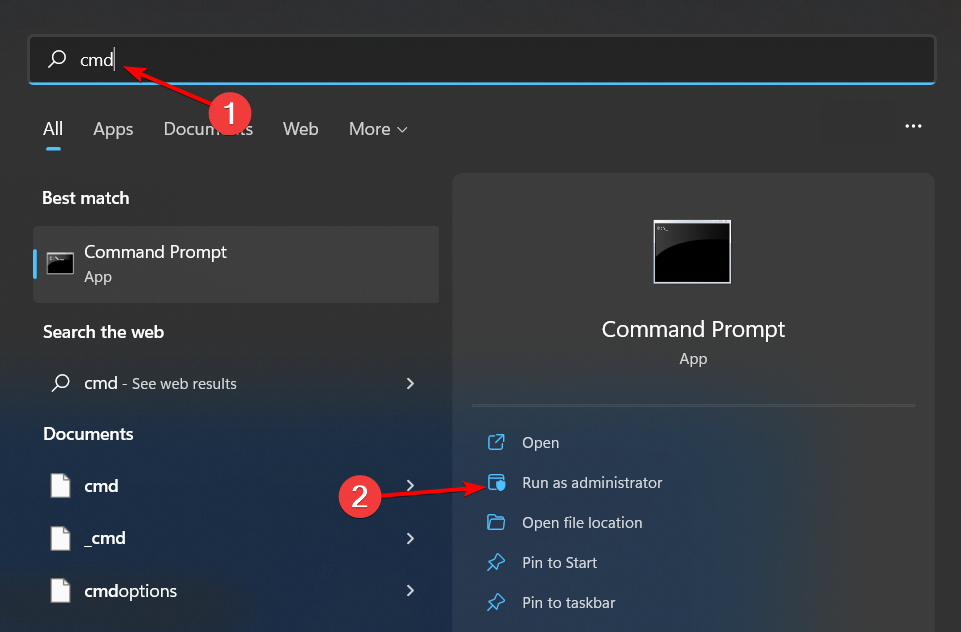
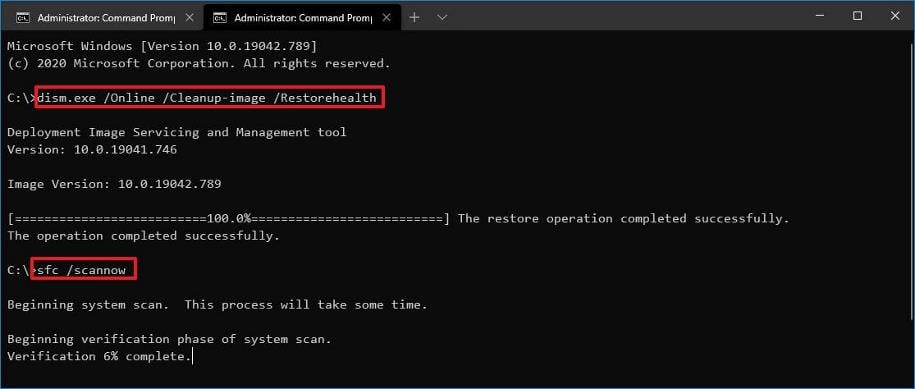
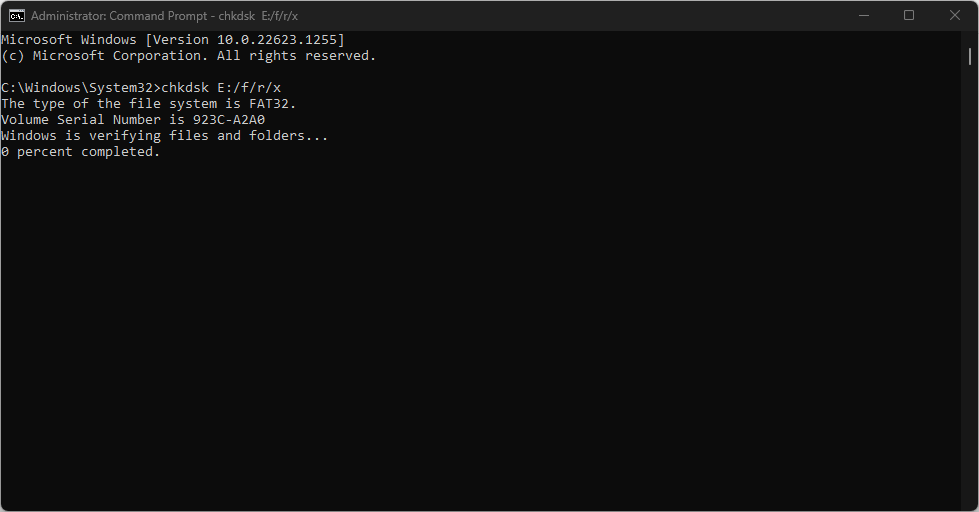


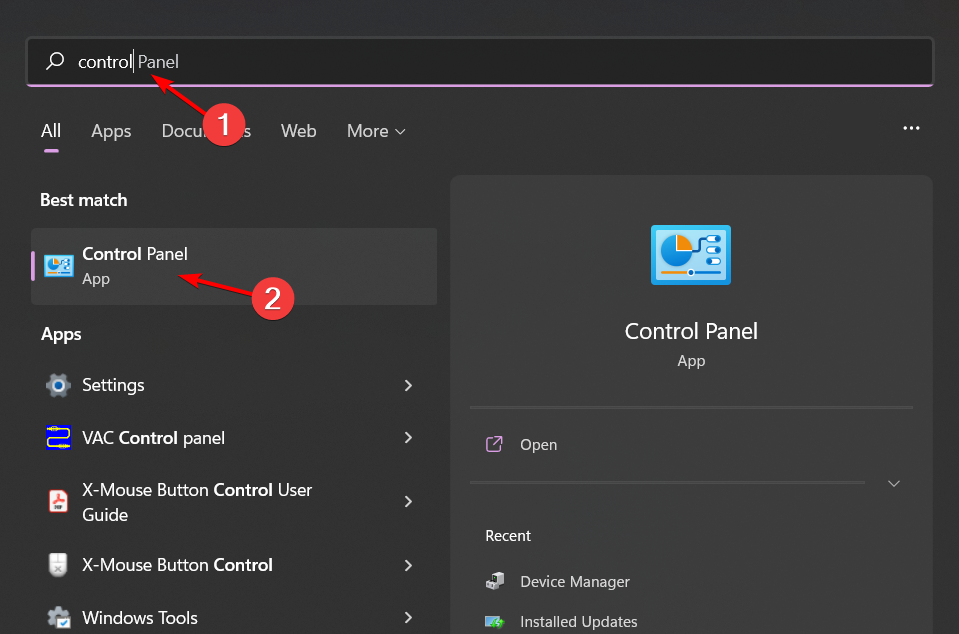
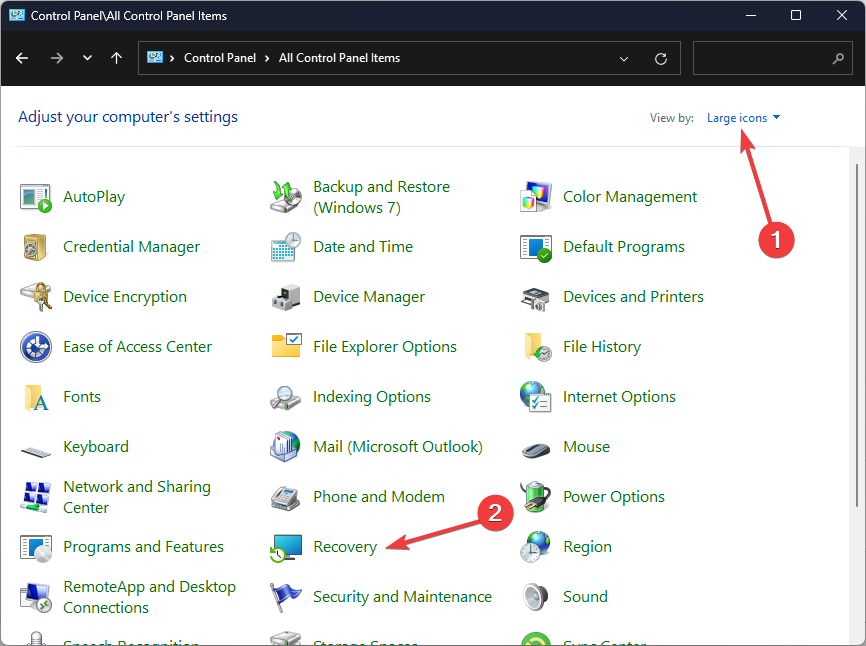
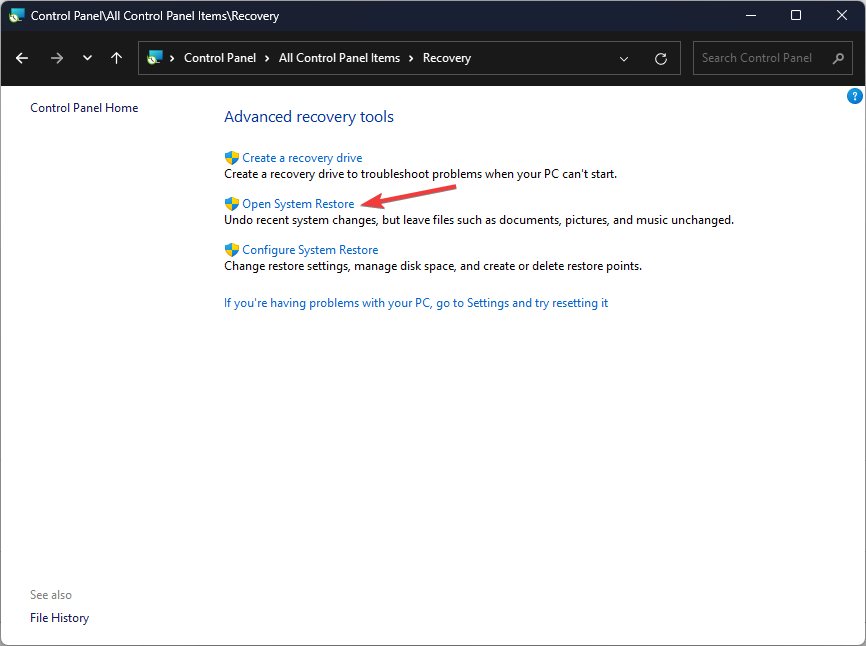
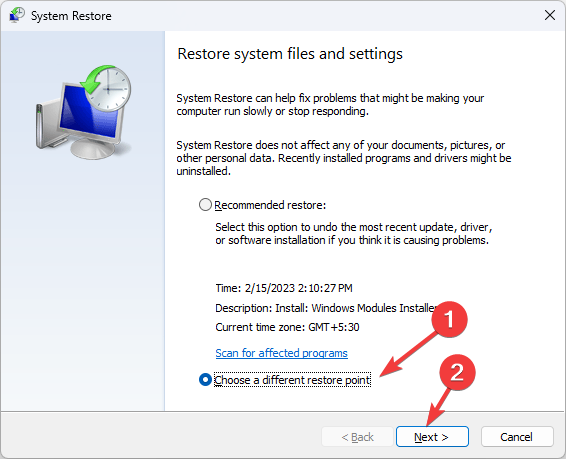
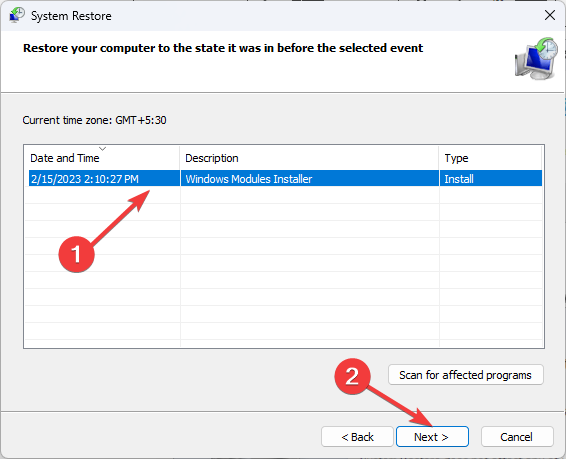
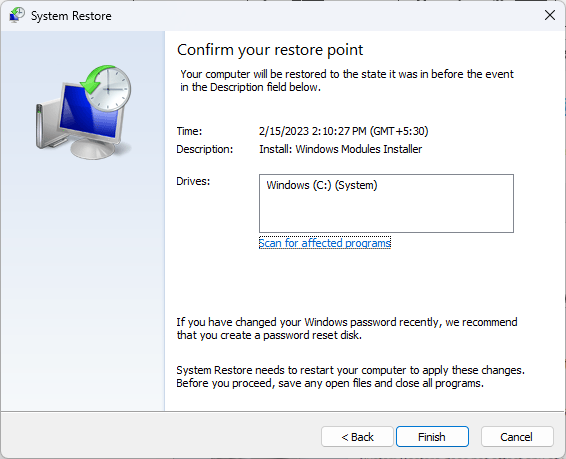
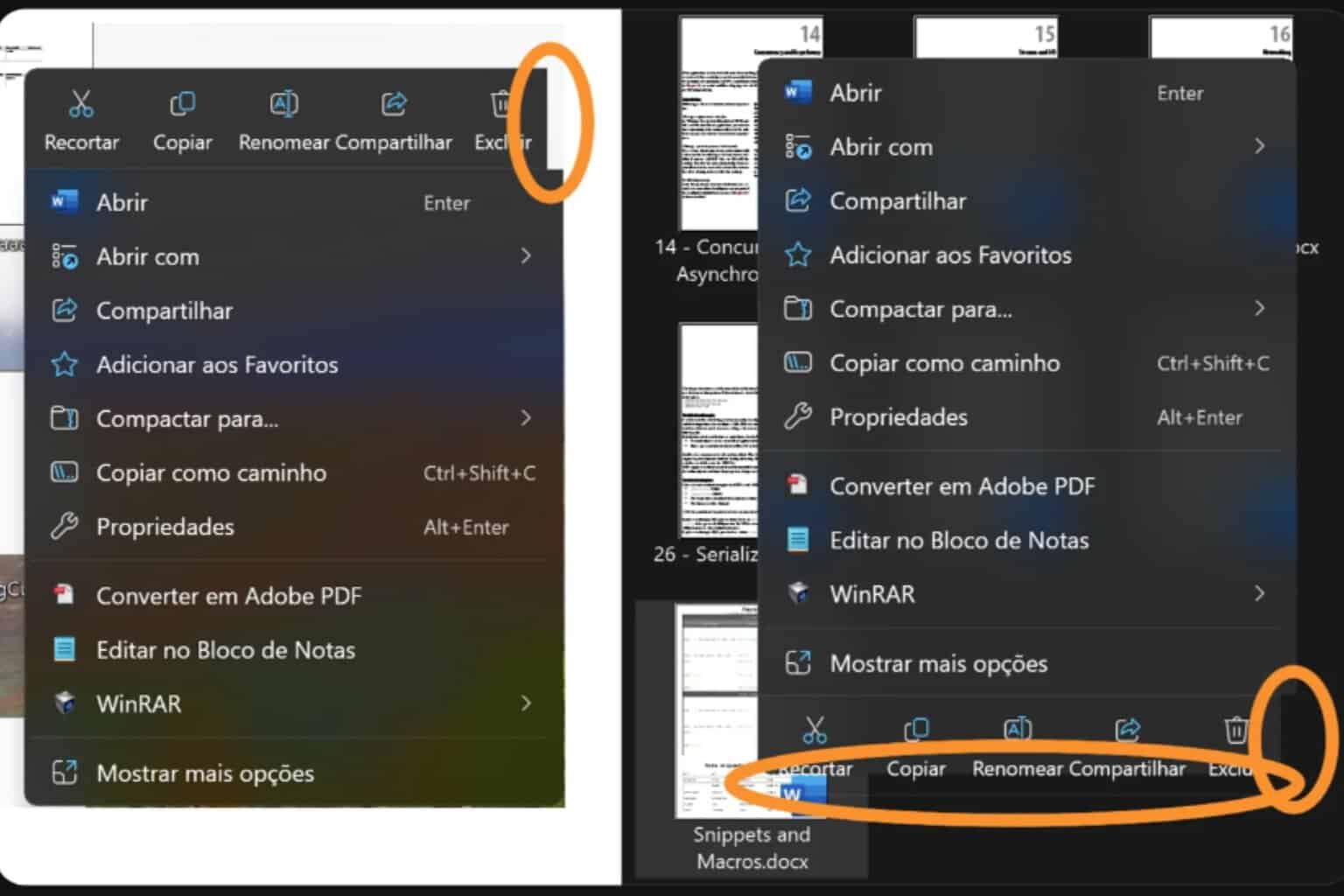
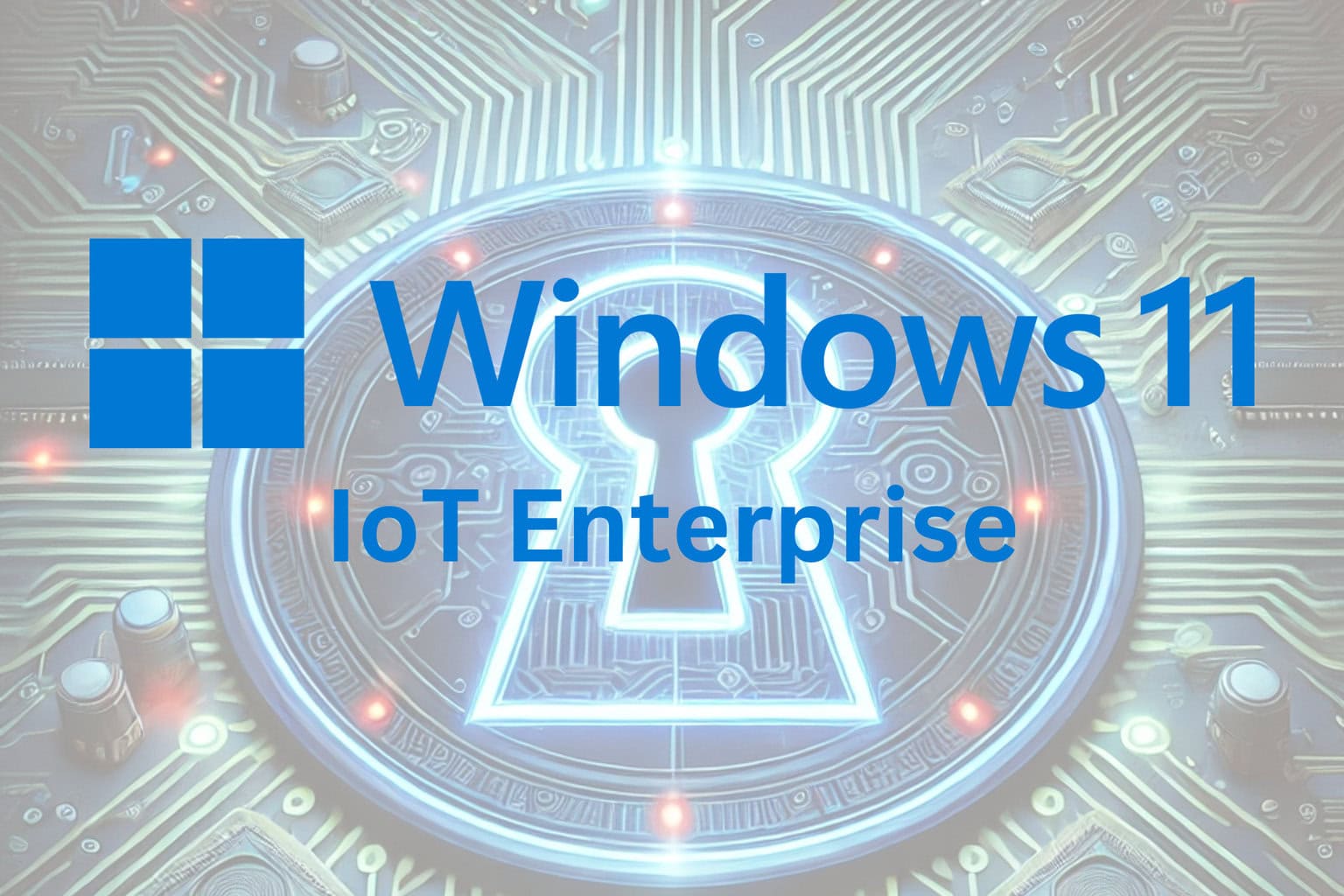
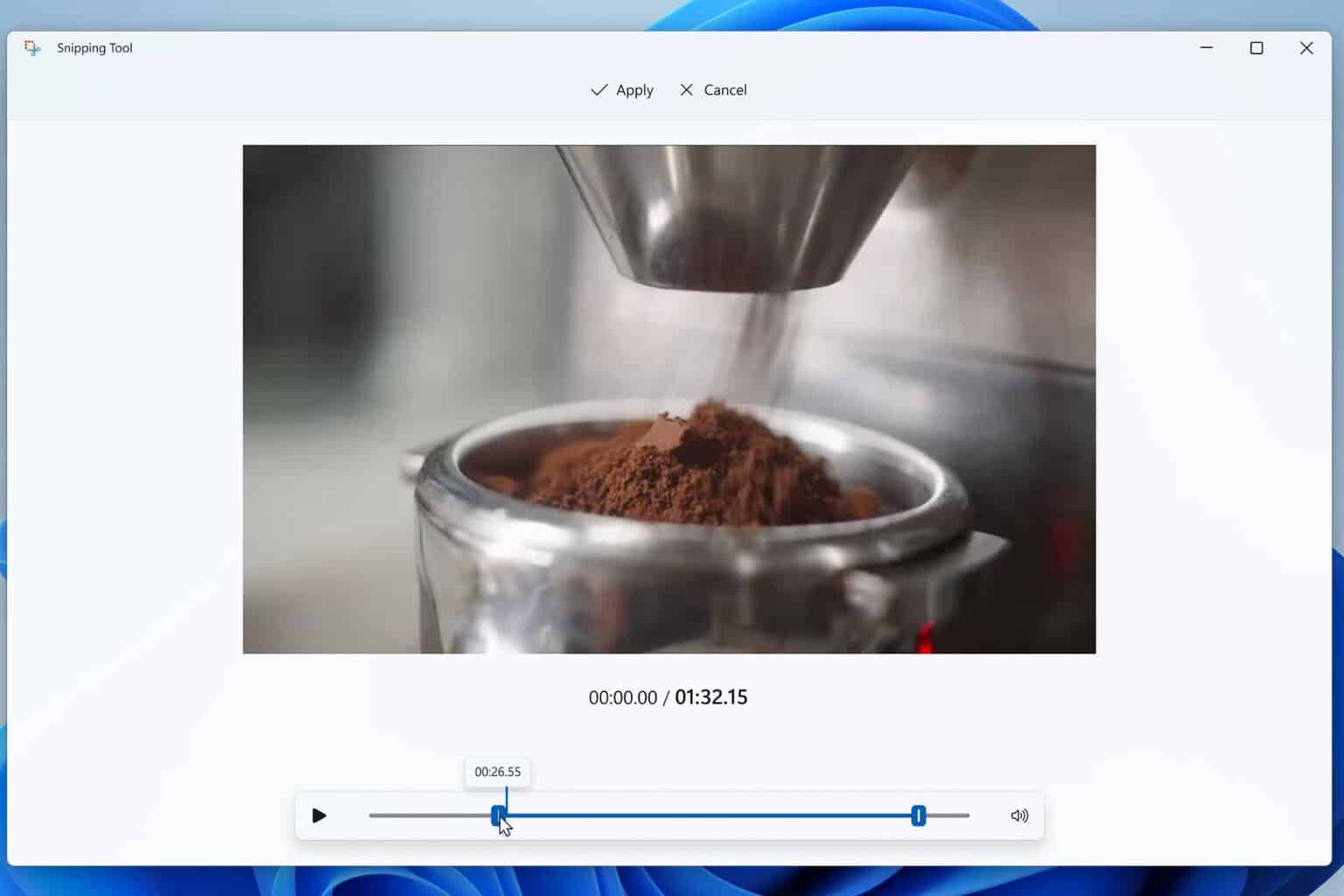
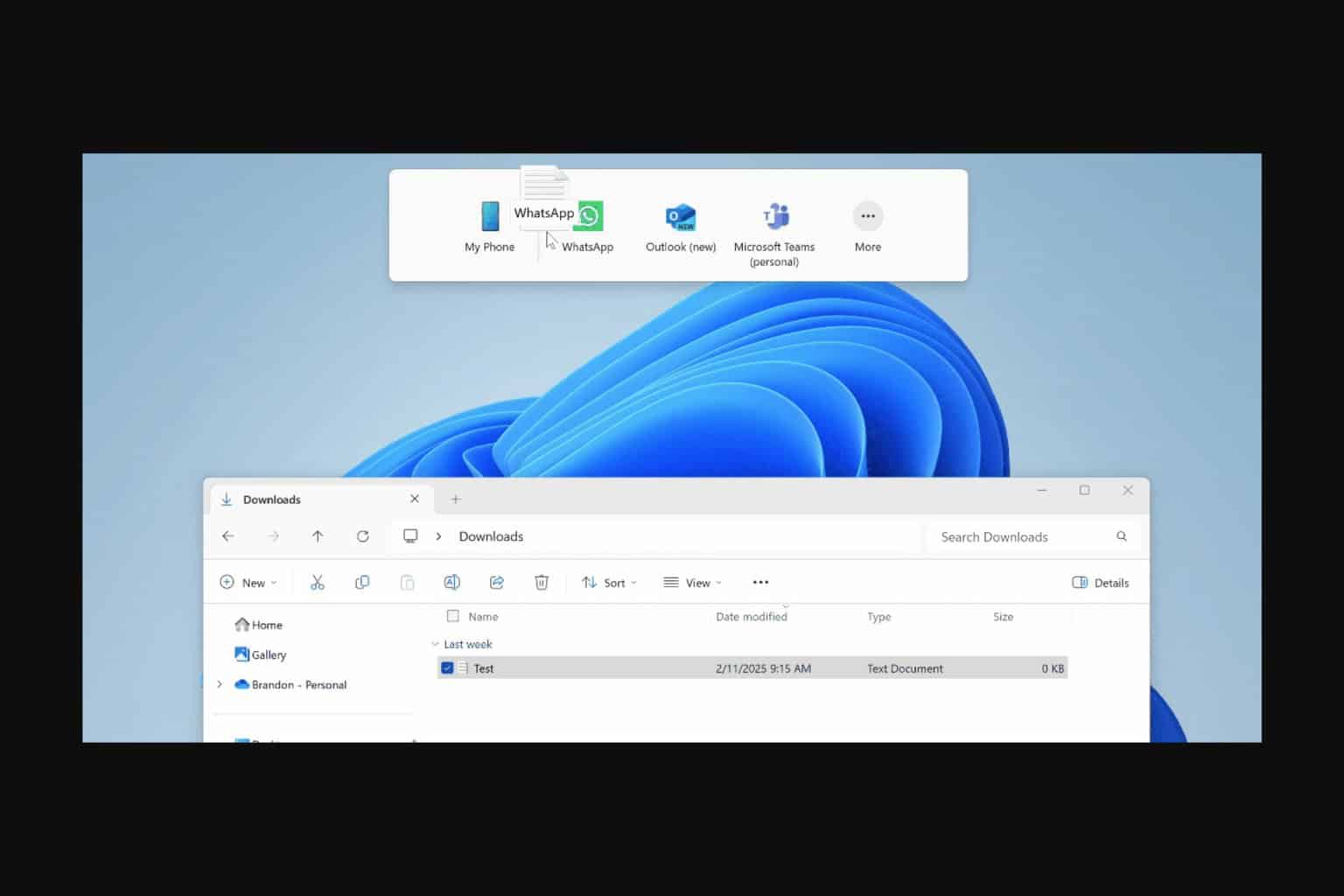
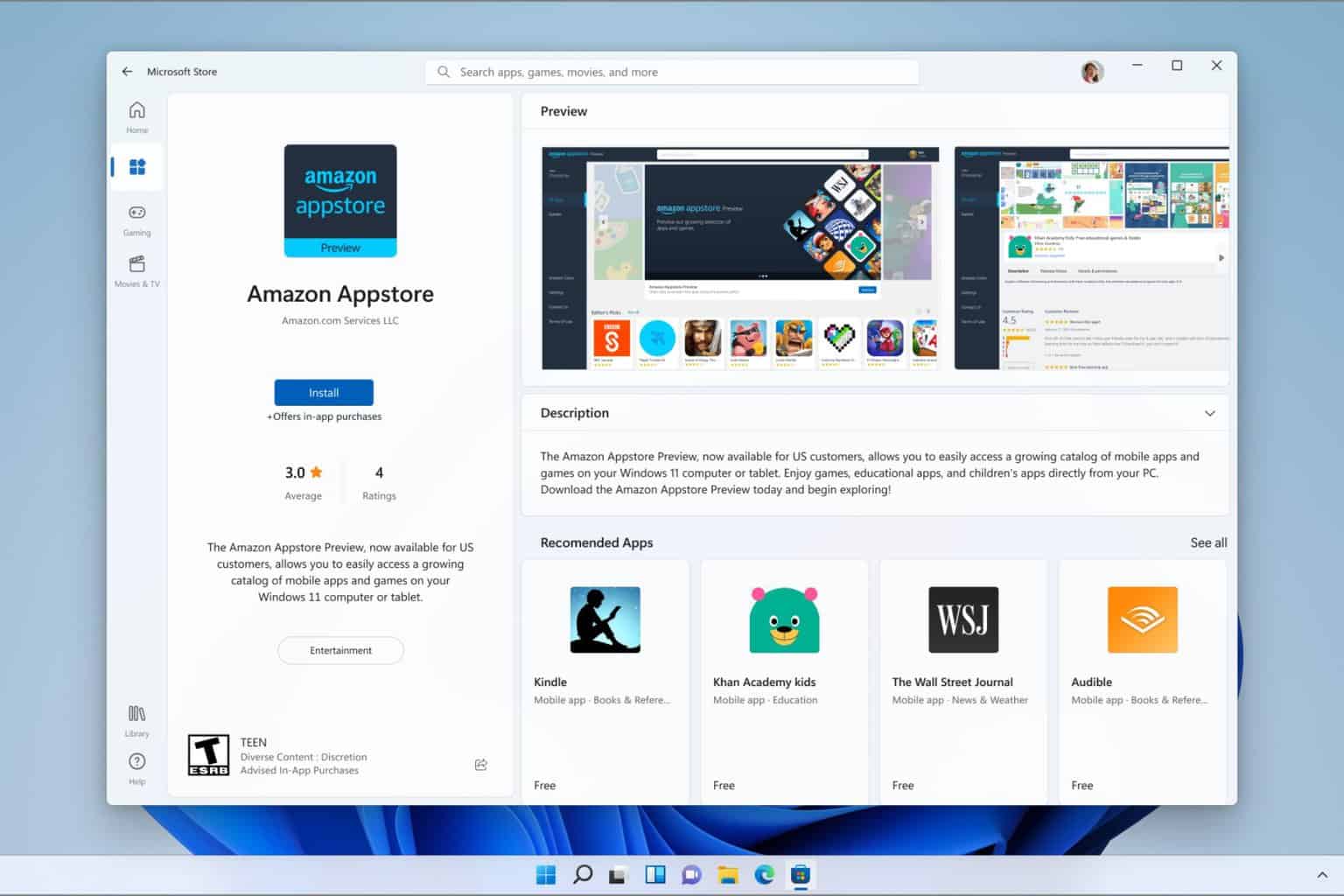
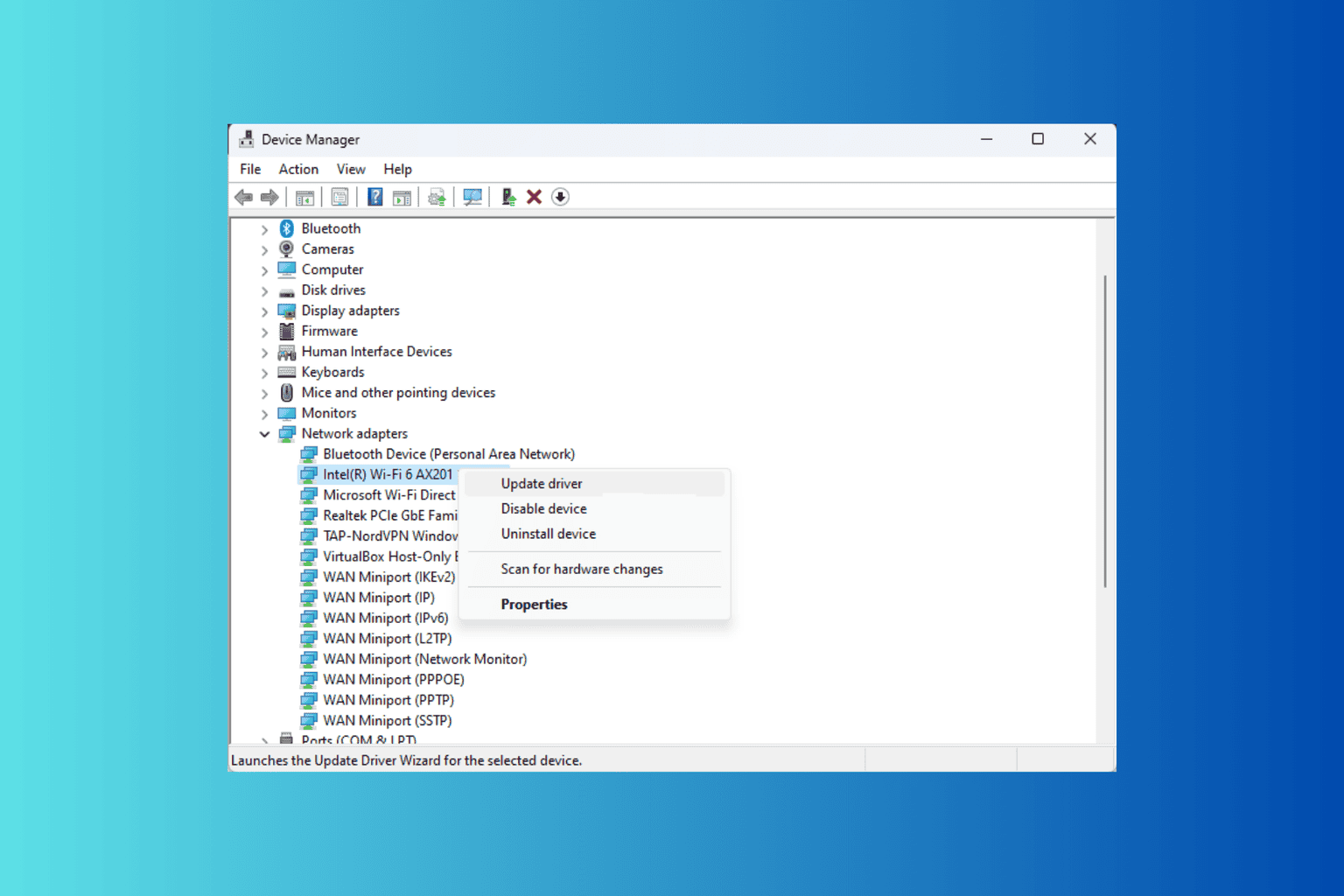
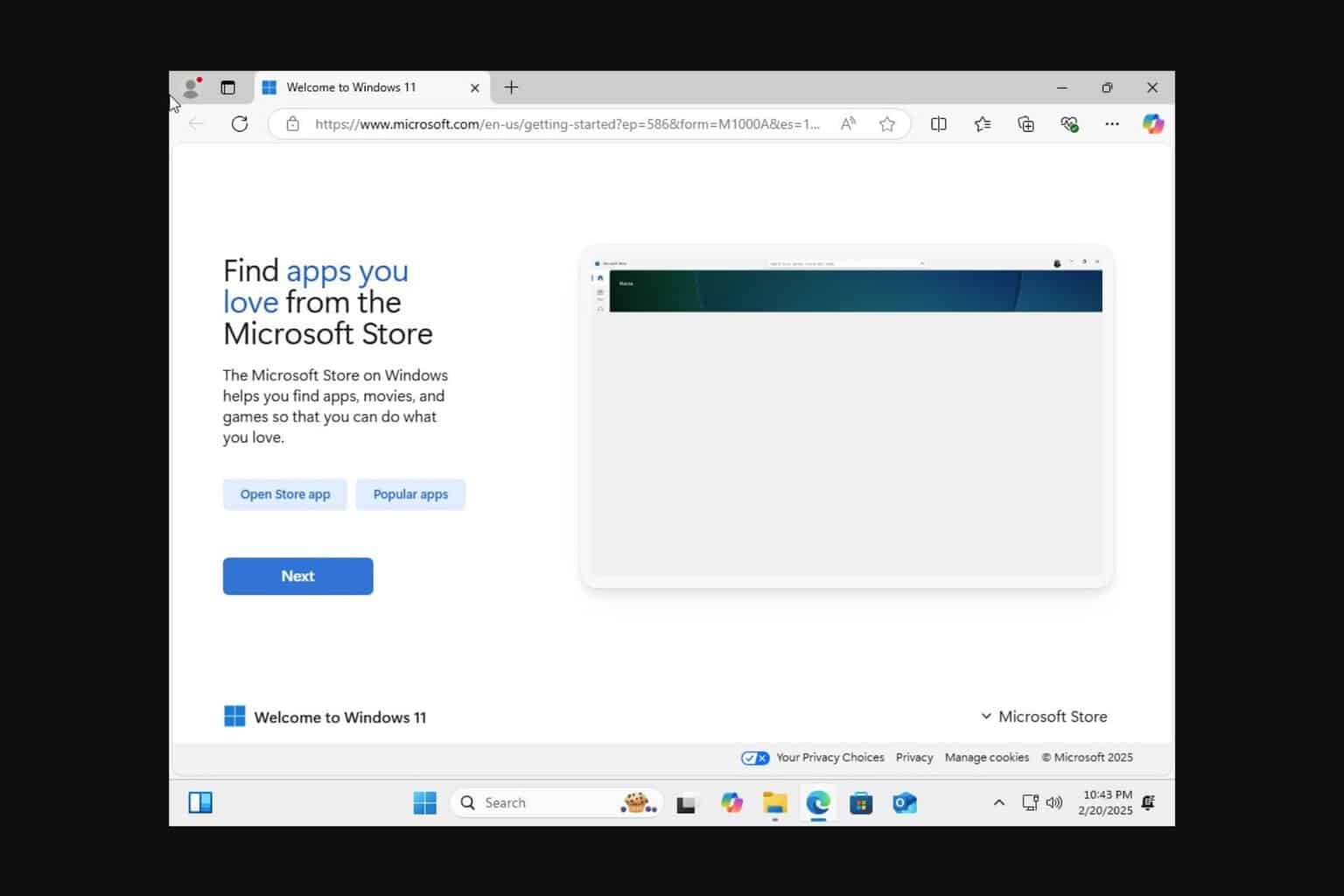
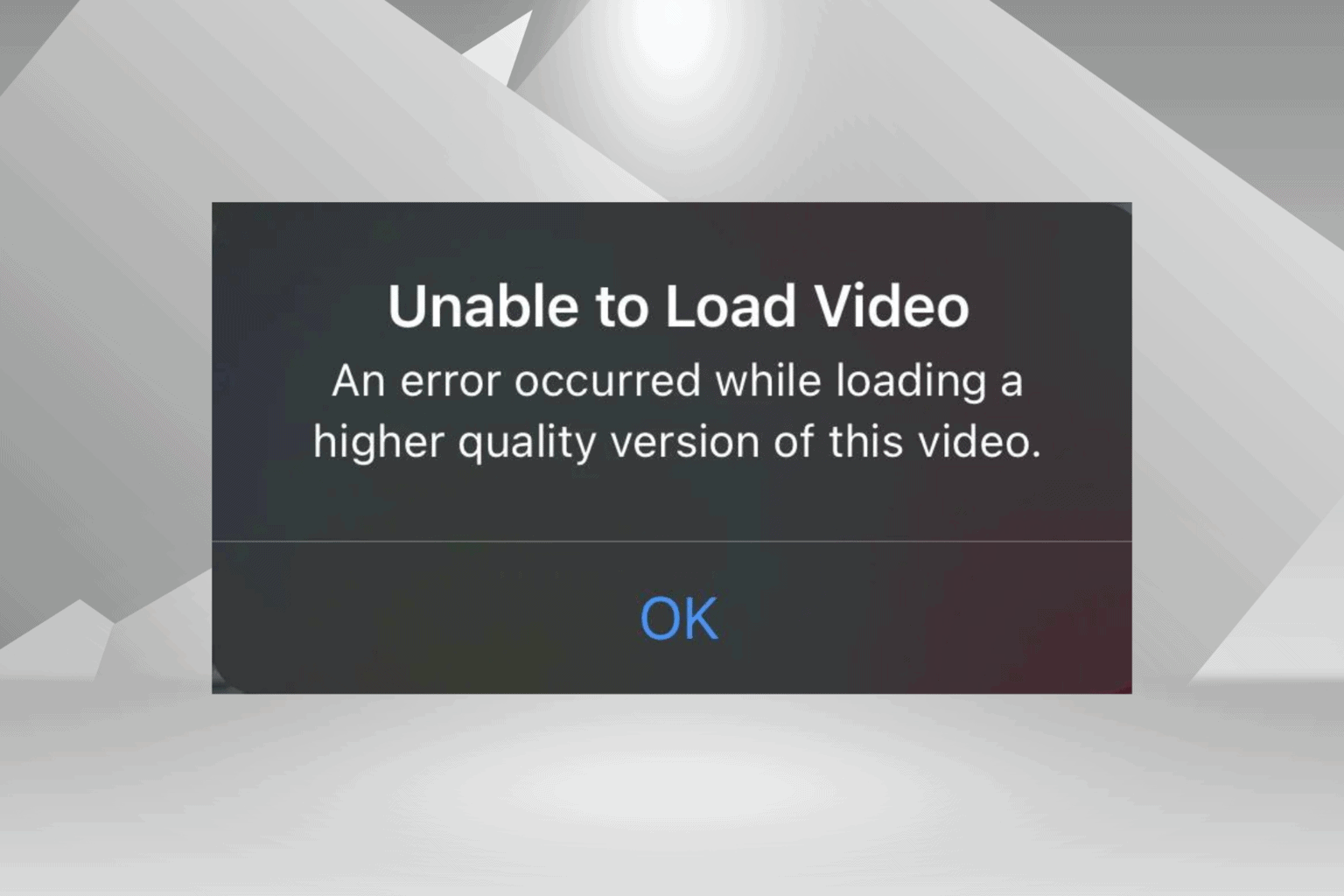
User forum
0 messages